第90章
`I'm very glad to find that you don't call yourself out of your name, sir,' said Mrs Blockson; `and as I had two twin children the day before yesterday was only seven weeks, and my little Charley fell down a airy and put his elber out, last Monday, I shall take it as a favour if you'll send nine shillings, for one week's work, to my house, afore the clock strikes ten tomorrow.'
With these parting words, the good woman quitted the room with great ease of manner, leaving the door wide open; Mr Knag, at the same moment, flung himself into the `warehouse,' and groaned aloud.
`What is the matter with that gentleman, pray?' inquired Mrs Nickleby, greatly disturbed by the sound.
`Is he ill?' inquired Kate, really alarmed.
`Hush!' replied Miss Knag; `a most melancholy history. He was once most devotedly attached to--hem--to Madame Mantalini.'
`Bless me!' exclaimed Mrs Nickleby.
`Yes,' continued Miss Knag, `and received great encouragement too, and confidently hoped to marry her. He has a most romantic heart, Mrs Nickleby, as indeed--hem--as indeed all our family have, and the disappointment was a dreadful blow. He is a wonderfully accomplished man--most extraordinarily accomplished--reads--hem--reads every novel that comes out; I mean every novel that--hem--that has any fashion in it, of course. The fact is, that he did find so much in the books he read, applicable to his own misfortunes, and did find himself in every respect so much like the heroes--because of course he is conscious of his own superiority, as we all are, and very naturally--that he took to scorning everything, and became a genius; and I am quite sure that he is, at this very present moment, writing another book.'
`Another book!' repeated Kate, finding that a pause was left for somebody to say something.
`Yes,' said Miss Knag, nodding in great triumph; `another book, in three volumes post octavo. Of course it's a great advantage to him, in all his little fashionable descriptions, to have the benefit of my--hem--of my experience, because, of course, few authors who write about such things can have such opportunities of knowing them as I have. He's so wrapped up in high life, that the least allusion to business or worldly matters--like that woman just now, for instance--quite distracts him; but, as I often say, I think his disappointment a great thing for him, because if he hadn't been disappointed he couldn't have written about blighted hopes and all that; and the fact is, if it hadn't happened as it has, I don't believe his genius would ever have come out at all.'
How much more communicative Miss Knag might have become under more favourable circumstances, it is impossible to divine, but as the gloomy one was within ear-shot, and the fire wanted making up, her disclosures stopped here.
To judge from all appearances, and the difficulty of making the water warm, the last servant could not have been much accustomed to any other fire than St Anthony's; but a little brandy and water was made at last, and the guests, having been previously regaled with cold leg of mutton and bread and cheese, soon afterwards took leave; Kate amusing herself, all the way home, with the recollection of her last glimpse of Mr Mortimer Knag deeply abstracted in the shop; and Mrs Nickleby by debating within herself whether the dressmaking firm would ultimately become `Mantalini, Knag, and Nickleby', or `Mantalini, Nickleby, and Knag'.
At this high point, Miss Knag's friendship remained for three whole days, much to the wonderment of Madame Mantalini's young ladies who had never beheld such constancy in that quarter, before; but on the fourth, it received a check no less violent than sudden, which thus occurred.
It happened that an old lord of great family, who was going to marry a young lady of no family in particular, came with the young lady, and the young lady's sister, to witness the ceremony of trying on two nuptial bonnets which had been ordered the day before, and Madame Mantalini announcing the fact, in a shrill treble, through the speakingpipe, which communicated with the workroom, Miss Knag darted hastily upstairs with a bonnet in each hand, and presented herself in the show-room, in a charming state of palpitation, intended to demonstrate her enthusiasm in the cause. The bonnets were no sooner fairly on, than Miss Knag and Madame Mantalini fell into convulsions of admiration.
`A most elegant appearance,' said Madame Mantalini.
`I never saw anything so exquisite in all my life,' said Miss Knag.
Now, the old lord, who was a very old lord, said nothing, but mumbled and chuckled in a state of great delight, no less with the nuptial bonnets and their wearers, than with his own address in getting such a fine woman for his wife; and the young lady, who was a very lively young lady, seeing the old lord in this rapturous condition, chased the old lord behind a cheval-glass, and then and there kissed him, while Madame Mantalini and the other young lady looked, discreetly, another way.
But, pending the salutation, Miss Knag, who was tinged with curiosity, stepped accidentally behind the glass, and encountered the lively young lady's eye just at the very moment when she kissed the old lord; upon which the young lady, in a pouting manner, murmured something about `an old thing,'
and `great impertinence,' and finished by darting a look of displeasure at Miss Knag, and smiling contemptuously.
`Madame Mantalini,' said the young lady.
`Ma'am,' said Madame Mantalini.
`Pray have up that pretty young creature we saw yesterday.'
`Oh yes, do,' said the sister.
`Of all things in the world, Madame Mantalini,' said the lord's intended, throwing herself languidly on a sofa, `I hate being waited upon by frights or elderly persons. Let me always see that young creature, I beg, whenever I come.'
`By all means,' said the old lord; `the lovely young creature, by all means.'